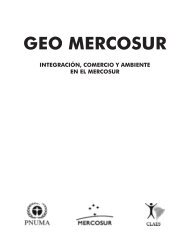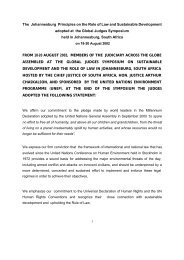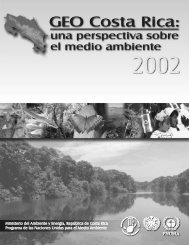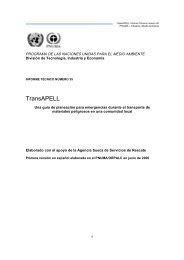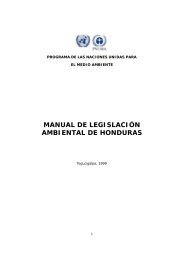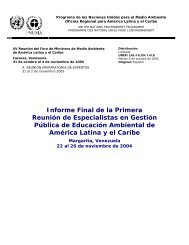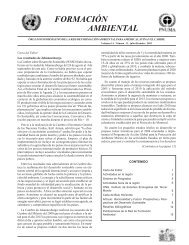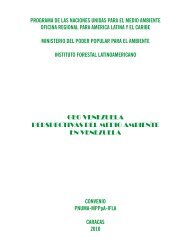GEO Haiti 2010
GEO Haiti 2010
GEO Haiti 2010
Create successful ePaper yourself
Turn your PDF publications into a flip-book with our unique Google optimized e-Paper software.
<strong>GEO</strong> HAITI • <strong>2010</strong><br />
164<br />
State of the<br />
Environment<br />
Urban Growth in<br />
Coastal Areas<br />
- Forest Cover and Biodiversity<br />
A number of protected green areas are created or enhanced. Forests are better managed<br />
and energy resources are subsidised throughout the country. Neglected spaces are<br />
restored with vegetation and the landscape seems renewed in many areas.<br />
A national system of protected sites is established which results in the reduced<br />
loss of the habitats of vulnerable animal and plant life. Measures on the saving<br />
endangered species and the protecting of migratory species are emphasized.<br />
Importance is given to the developing of a biological corridor. These measures will<br />
be accompanied by public information campaigns to promote the participation<br />
of the population.<br />
The pressure on the country seems to be noticeably relieved and <strong>Haiti</strong> is on<br />
its way to sustainable development. Small, scattered, very short-term projects<br />
are replaced with ones lasting several years which are likely to produce more<br />
viable results in the short, medium and long term. With the demographic<br />
parameters decreasing, the possibilities are endless in terms of strengthening<br />
the socio-economic parameters boosted by good political and environmental<br />
governance.<br />
- Air Quality<br />
The government promotes initiatives to monitor and control the sources of<br />
industrial emissions as well as open dumps.<br />
- Waste<br />
Selective waste collection, as well as the treatment and reprocessing of waste<br />
(compost) are important objectives. The government could also consider the<br />
production of methane gas as well as encourage the reduction of the amount of<br />
waste produced through public awareness programmes.<br />
- Infrastructure and Services<br />
Housing should be equipped with basic services (water, electricity, telephone and<br />
internet). The construction of a first-rate transport infrastructure (roads, highways,<br />
railways) will be essential in the future not only for the improvement of public<br />
transport but also for the reorganisation of the sector.<br />
The reform of the system of excreta management including the installation of<br />
modern sanitary facilities is another important area of focus. The government<br />
commits to increase availability to these facilities to the most vulnerable<br />
population thereby reducing the number of persons without access to sanitary<br />
disposal of excreta.<br />
- Wastewater Management<br />
The setting up of water treatment and water purifying plants will enable the<br />
preservation of the quality of bodies of water where wastewater is generally<br />
discharged.<br />
The sanitation coverage of the population is greatly improved: sewage systems<br />
are upgraded in both urban and rural areas; the State adopts a strict approach to<br />
the quality of drinking water and to the protection of water sources especially in<br />
terms of human settlements nearby.



